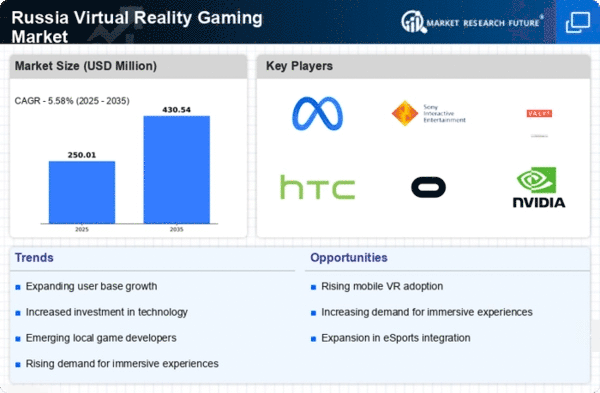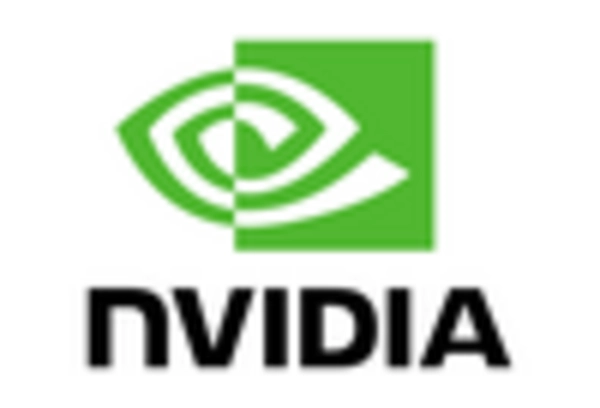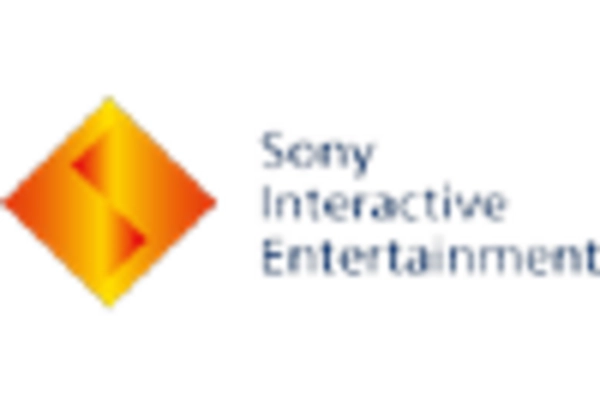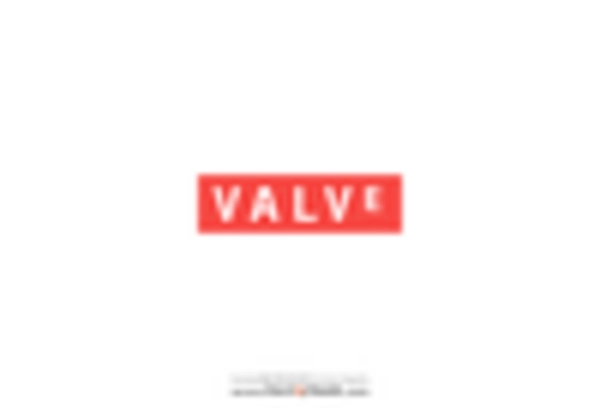Rising Popularity of Esports
The rising popularity of esports in Russia is significantly impacting the virtual reality-gaming market. With an increasing number of esports tournaments featuring VR games, the market is witnessing heightened interest from both players and spectators. In 2025, the esports industry in Russia is estimated to generate revenues exceeding $100 million, with a notable portion attributed to VR gaming. This trend is encouraging game developers to create competitive VR titles, thereby expanding the gaming portfolio available to consumers. Additionally, the integration of VR technology into esports events enhances the viewing experience, attracting more fans and participants. Consequently, the growth of esports serves as a powerful driver for the virtual reality-gaming market, fostering innovation and investment in new gaming experiences.
Expansion of Internet Infrastructure
The expansion of internet infrastructure in Russia plays a crucial role in the growth of the virtual reality-gaming market. Improved broadband connectivity and the rollout of 5G networks are enabling seamless online gaming experiences. As of November 2025, approximately 80% of urban areas in Russia have access to high-speed internet, which is essential for multiplayer VR gaming. This connectivity allows gamers to engage in real-time interactions and enhances the overall gaming experience. Furthermore, the increasing availability of affordable internet packages is likely to attract a broader audience to the virtual reality-gaming market. The enhanced online capabilities are expected to drive user engagement and retention, making internet infrastructure a vital driver for the market's expansion.
Government Support for Gaming Initiatives
Government support for gaming initiatives in Russia is emerging as a significant driver for the virtual reality-gaming market. Various programs aimed at promoting digital technologies and creative industries are being implemented, which include funding for game development and incentives for startups. In 2025, the Russian government allocated approximately $50 million to support the gaming sector, with a focus on VR technologies. This financial backing is likely to stimulate local game development, leading to a diverse range of VR titles that cater to different audiences. Furthermore, government initiatives to enhance digital literacy and promote STEM education are expected to cultivate a new generation of developers and gamers, thereby contributing to the long-term growth of the virtual reality-gaming market.
Technological Advancements in VR Hardware
The virtual reality-gaming market in Russia is experiencing a surge due to rapid technological advancements in VR hardware. Innovations in graphics processing units (GPUs) and head-mounted displays (HMDs) are enhancing the immersive experience for gamers. For instance, the introduction of lightweight, high-resolution HMDs has made VR gaming more appealing. In 2025, the market for VR hardware in Russia is projected to reach approximately $500 million, reflecting a growth rate of around 15% annually. This growth is driven by increased consumer demand for high-quality gaming experiences, which is further supported by local manufacturers investing in R&D to produce competitive products. As a result, the technological evolution in hardware is a key driver for the virtual reality-gaming market, fostering a more engaging and interactive gaming environment.
Cultural Shift Towards Interactive Entertainment
A cultural shift towards interactive entertainment is influencing the virtual reality-gaming market in Russia. As consumers increasingly seek immersive experiences, traditional gaming is evolving to incorporate more interactive elements. This shift is reflected in the growing popularity of VR arcades and social VR platforms, which offer unique gaming experiences that blend social interaction with gameplay. In 2025, the number of VR arcade locations in major Russian cities is projected to exceed 200, indicating a robust demand for interactive entertainment. This trend suggests that consumers are willing to invest in VR experiences that provide social engagement and community building. As a result, the cultural transformation towards interactive entertainment is a key driver for the virtual reality-gaming market, fostering innovation and expanding the consumer base.















